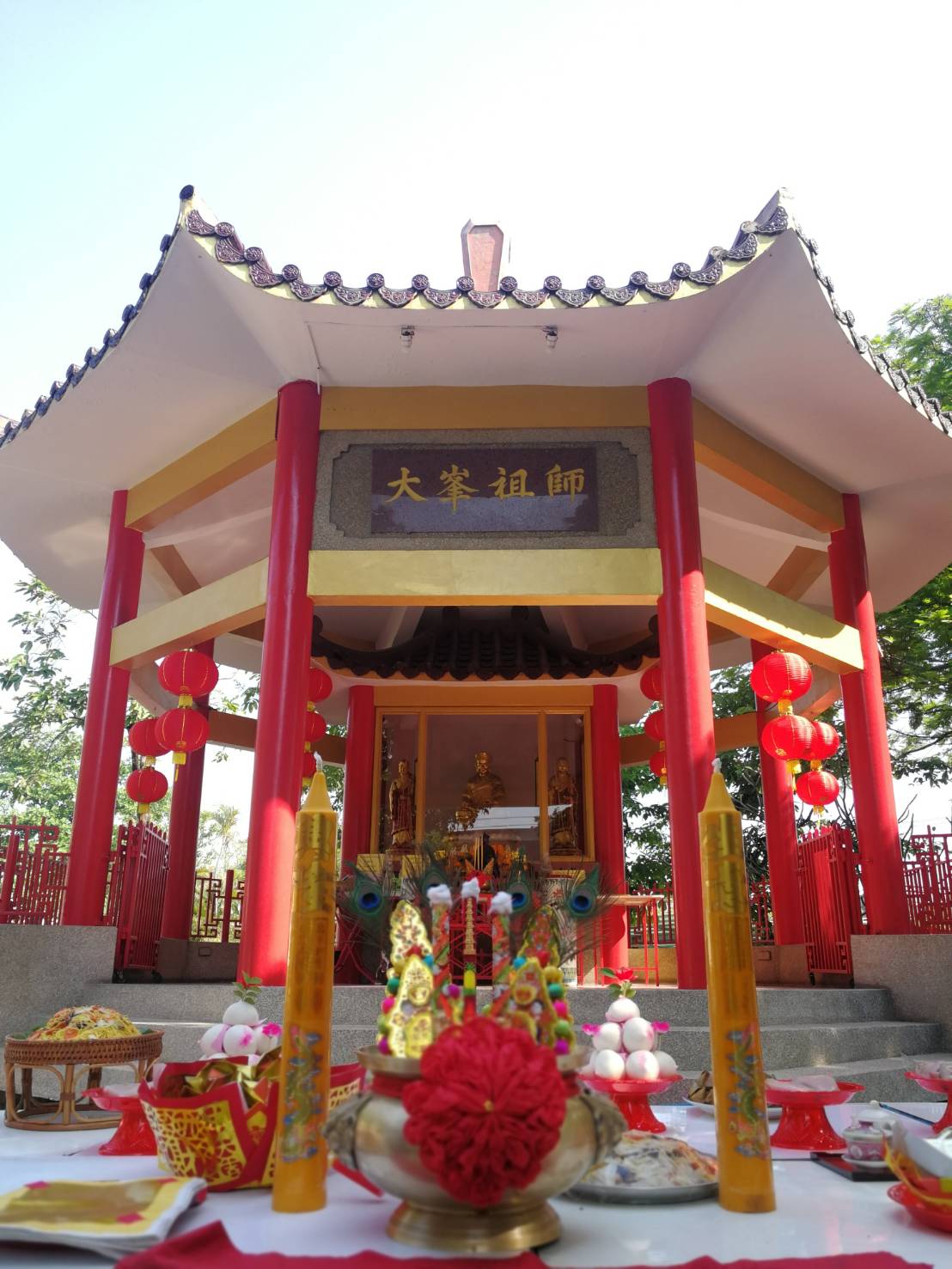
HCU SDG NEWS

Huachiew Chalermprakiet University Opens Access to Cultural Heritage with Luang Poh Tai Hong Shrine
Huachiew Chalermprakiet University (HCU) is proud to provide public access to its culturally significant buildings, monuments, and natural heritage landscapes, offering a unique opportunity for the local community and visitors to connect with the rich history of Thai-Chinese culture. One of the most prominent landmarks at HCU is the Luang Poh Tai Hong Shrine, a revered site that holds deep cultural and spiritual significance for both the university and the wider community.
The shrine honors Luang Pu Tai Hong, also known as Tai Hong Kong, a highly respected Buddhist monk who is regarded as the great ancestor of Huachiew Chalermprakiet University and the Poh Tech Sieng Tung Foundation in Thailand. In Thai-Chinese culture, the term “Luang Pu” (revered grandfather) is used to address a figure of profound respect, aligning with the Chinese “Kong” in the Teochew dialect, symbolizing deep reverence for Tai Hong’s teachings and contributions.
Located on the university’s campus, the shrine serves as a place of reflection and devotion for the local Thai-Chinese community and visitors from around the world. Open to the public every day, it is a popular destination for those who seek to honor the monk and engage in acts of veneration, offering incense, prayers, and gifts in tribute. The shrine’s presence at HCU not only connects visitors with their cultural roots but also highlights the university’s commitment to preserving and sharing valuable traditions.
Luang Pu Tai Hong was born during the Song Dynasty (960–1279) and is celebrated for his immense compassion, generosity, and altruism. Over the centuries, impoverished villagers in China and throughout Southeast Asia have revered him for his ability to dispel misfortune and bring prosperity and happiness. His boundless compassion and teachings continue to resonate with his devotees today, providing a source of spiritual guidance and hope for many.
Devotees believe that through making offerings and prayers at the shrine, they are able to invite positive energy into their lives and achieve success in their endeavors. This practice has become an important weekend tradition for Thai-Chinese families, as well as a meaningful cultural experience for visitors of diverse backgrounds who come to pay their respects and learn about the enduring legacy of Tai Hong. The shrine has not only become a site of worship but also an emblem of the enduring faith and reverence that has been passed down through generations.
The Luang Poh Tai Hong Shrine at HCU is a vital cultural and spiritual landmark, offering public access to a deep part of Thai-Chinese heritage. The university’s initiative to keep this space open to all reflects its broader commitment to fostering intercultural understanding and preserving cultural traditions. Visitors to the shrine are invited to engage in the spiritual practices that have been honored for centuries, ensuring the ongoing legacy of Luang Pu Tai Hong’s compassion and wisdom.



